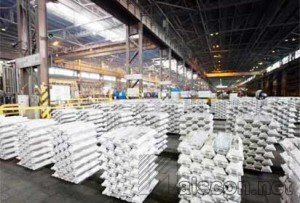
Mkpoikana Udoma
Port Harcourt — The Nigerian Gas Company Limited, NGC, has lost over N.72 triilion due to the under-utilisation of its 1100km gas pipeline covering Alakiri-Afam-Ukanafun-Ikot Abasi, which was meant to supply gas to Aluminium Smelter Company of Nigeria, ALSCON.
NGC, a subsidiary of NNPC, is responsible for the gathering, treating, transmitting and marketing Nigeria’s natural gas and its by-products to major industrial and utility gas distribution companies in Nigeria and neighboring countries.
Chief Coordinator, Institute of Chartered Economists of Nigeria, South-South, Mr. Friday Udoh, said OML18 acreage, being operated by Eroton E&P Ltd, produces the gas that was supposed to feed ALSCON, through the 1100km pipeline owned by NGC.
Udoh said subjecting strategic national asset such as ALSCON to politics, is not putting Nigeria in the right pedestrian, especially in attracting foreign direct investment given the country’s unpredictability of business operating environment.
He said Nigerians and the world are watching on the matter adjudicated by the Supreme Court and the intrigue on the implementation of the eight years judgment ruled in favour of BFIG Corporation.
“The N609billion 1100km gas pipeline which runs from Alakiri-Afam-Ukanafun-Ikot-Abasi, owned by the Nigerian Gas Company Ltd with capacity of 450mmscf/d meant to boost the energy need of ALSCON of 97.68mmscf/d, is barely utilized.
“The money spent in the construction of the pipeline, if efficiently appropriated could have reduced crime profile.
“The cost due to lack of capacity utilization at 11percent operations by the erstwhile owners, DHL/UC Rusal for six years and the undeserved closure of the plant for seven years, along the under-utilized pipeline is N.72 trillion revenue to economy.”
“At the prevailing aluminium market rate of $1,825.15, ALSCON is capable of contributing N127.61billion revenue to Nigeria’s economy.
“Apart from value added potential of the plant, the production of metal can generate an annual value to Nigeria’s economy amounting to $229.5million or 70percent of annual turnover, further with capacity of employing 61,200 Nigerians.”
The Economist said uncertainty pervades Nigeria‘s economy over soaring debt profile of N30.33 trillion, beside the deteriorating revenue disposition of the country, amidst business-as-usual disposition of Nigeria’s economic managers.
He said business as usual could impair the country’s reputation and image.
“Nigeria needs fiscal reform and expansionary economic policy and strong institutions, else Nigeria’s debt could upswing to almost 36percent of GDP by 2024 and interest payments could make up 74.6percent of revenue, as forecasted by International Monetary Fund.”



